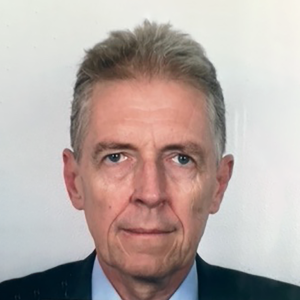International Day of Commemoration in Memory of the Victims of the Holocaust "Recognizing the Extraordinary Courage of Victims and Survivors of the Holocaust" Statement by Volker Türk, UN High Commissioner for Human Rights 27 January 2024
26 January 2024
This is a day of profound importance. We remember and honour the millions of victims of the Nazi Holocaust – children, women and men on whom atrocious suffering and injustice were inflicted by an abominable machinery of mass murder.
Some six million Jews were murdered in the Holocaust, 1.5 million of them children. Millions of other people from targeted groups were also murdered, including Roma and Sinti people; Slavs; people with disabilities; LGBTIQ+ people; members of resistance networks; and other opponents of Nazism.
Six extermination camps, at Auschwitz-Birkenau, Belzec, Chelmno, Majdanek, Sobibor and Treblinka, were equipped with machinery designed specifically for killing on a massive, industrial scale. About one million Jews were killed at Auschwitz alone. Millions more were imprisoned, abused and murdered in a vast network of thousands of other concentration camps, where they were forced into slave labour, including sexual slavery, and medical experimentation.
The scale of these crimes engaged many perpetrators. The Nazi concentration camps and death trains were staffed. The victims had often been identified to the police, and therefore sent to their deaths, by people whom they knew. Countless bystanders looked away from – or were indifferent to – what they must have suspected was extraordinary, inhuman brutality. The dehumanisation that enabled the Holocaust – the depth and scale of this failure of empathy and fellow-feeling for other human beings – is incomprehensible and terrifying.
It is our duty to seek answers to how these crimes could have been prevented. If we do not, they could happen again.
As part of this work, and in the face of genocide denial, it is essential to ensure accurate historical knowledge of the Holocaust, or Shoah, in all its appalling detail.
The testimony of survivors of the Holocaust is both essential to that work, and extremely painful. Simone Veil, who later became a magistrate and President of the European Parliament, entered Auschwitz-Birkenau at the age of 16. Until her death, in 2017, she spoke to schoolchildren and others about the brutality, terror, humiliation and enslavement that she, her family and so many others were forced to endure. She also recounted moments of tenderness and courage – encounters with other prisoners that were often deeply touching.
Austrian Holocaust survivor Helga Pollak-Kinsky spoke at the UN in Geneva about the adults – “carers, teachers, artists” – who helped children in the camps “to maintain our faith in ourselves and in humanity.” Viktor Frankl and many others have also spoken of the human bonds that were forged in these horrific conditions, and the ways in which those bonds of fellow-feeling helped individuals to retain their sanity, and survive the camps.
I pay tribute to the extraordinary courage and important lessons that so many survivors have brought to us. I admire their resilience. I thank them from the bottom of my heart for the humanity and selflessness of their testimony.
The world's horror at the Holocaust led directly to the adoption of the Convention on the Prevention and Punishment of the Crime of Genocide, and to the Universal Declaration of Human Rights 75 years ago. It was also instrumental in the adoption of the European Convention on Human Rights and a host of international treaties that enshrine our equality, our dignity and our rights in the face of tyranny and destitution.
These are conventions and principles and values that must forever be upheld.
All human beings are born free and equal in dignity and rights. Antisemitism and all forms of racism and racial or religious discrimination are intolerable. They are unacceptable. Today and forever, we must stand against dehumanisation. We must work to overcome indifference and strengthen our understanding of and empathy with others. The atrocious crimes of the Holocaust must never be forgotten.


